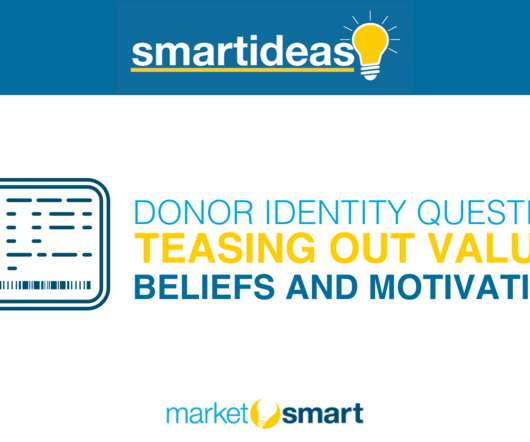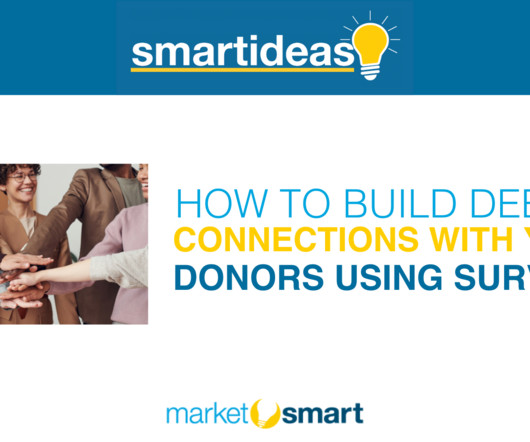Using Research to Raise More Money
Nonprofit Marketing Guide
OCTOBER 12, 2022
You can search broadly for something like “fundraising,” “nonprofit marketing,” or, “nonprofit donor motivation” and see what comes up. If you are a student or staff at a university, you may have access to a number of journals at no additional cost to you through your library. It’s that easy!












Let's personalize your content